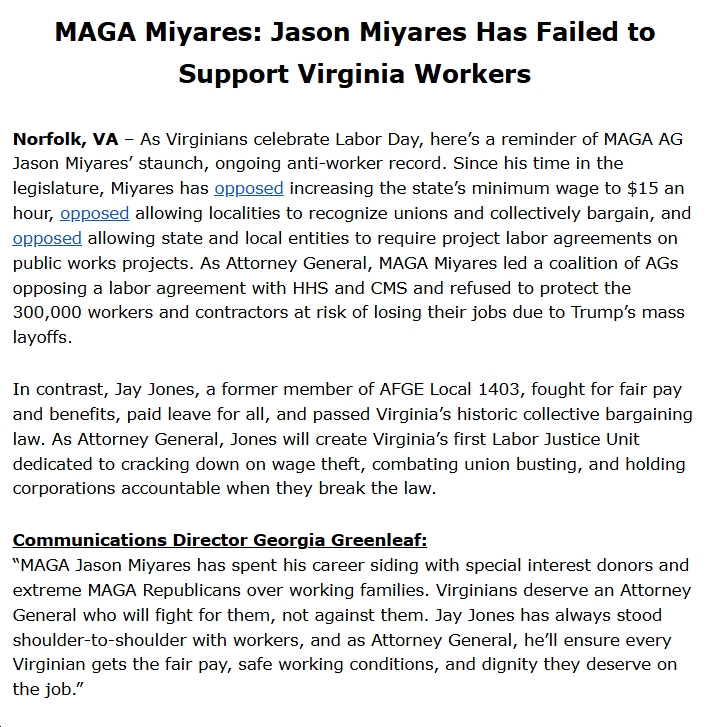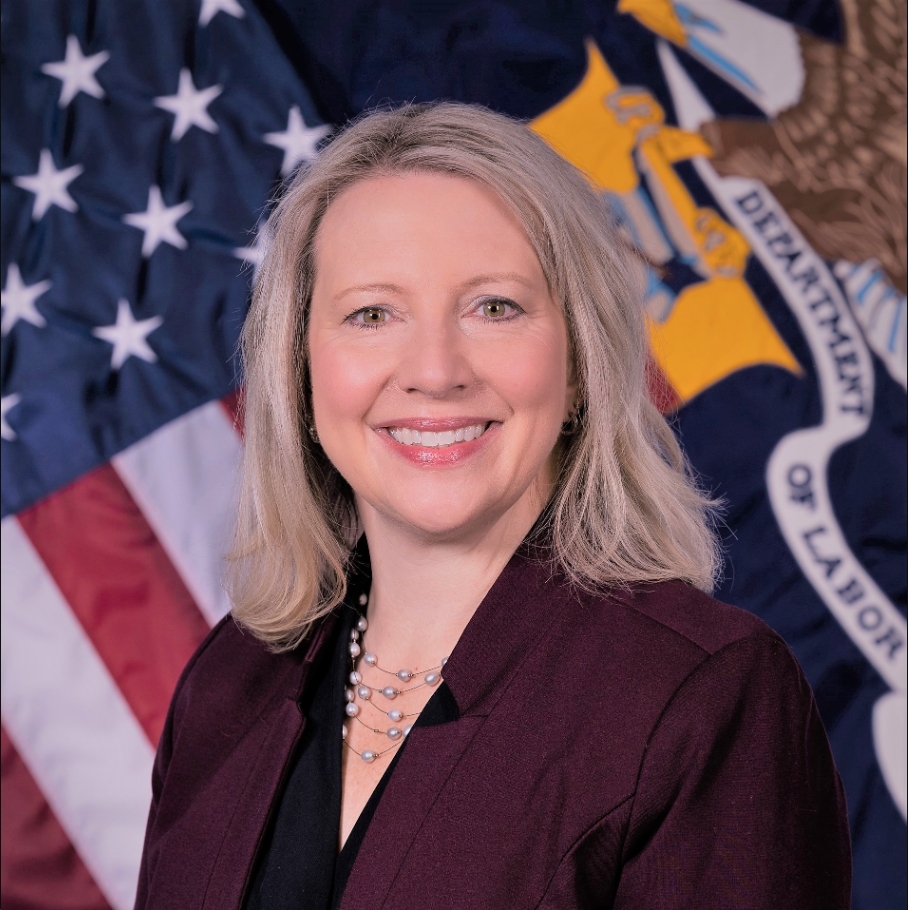From Progress Virginia:
Virginia House Joins State Senate and Squashes Bill To Shield Corporations That Fail To Protect Workers & Customers
Action Makes Virginia First State to Reject Sweeping Corporate Immunity Legislation
Richmond, VA – Earlier today, the Virginia House of Delegates followed the State Senate and scrapped attempts to shield corporations from liability when they fail to prevent workers and customers from contracting COVID-19. The House re-referred the immunity bill, HB 5074, to the House Courts of Justice committee, which is not scheduled to meet again this special session, effectively scrapping the bill.
Delegate Rip Sullivan, the House sponsor of the bill, had advocated the approach taken in the version passed out of committee, which gave businesses immunity if they complied with the state’s strong COVID-19 Emergency Temporary Standard. That approach was flatly rejected in the Senate, which removed any requirement of compliance with public health standards from its version of the immunity legislation, and by the business community.
“Today’s action is a win for workers in Virginia. We need to protect workers from COVID-19, not protect negligent businesses who fail to protect the health and well-being of their employees,” said David Broder, President of SEIU Virginia 512. “Essential workers get up and do the unthinkable – risk their health and the health of their families – to ensure the rest of us can go about our daily lives. This corporate immunity bill was nothing more than a backdoor attempt to weaken Virginia’s Emergency Temporary Standard to protect front line workers. We applaud Delegate Sullivan and his colleagues for standing up for workers.”
Background:
- In the past week, there have been an average of 1,012 new COVID-19 cases reported per day in Virginia.
- Black, Indiginous, Latinx and other people of color are disproportionately getting sick and dying from COVID-19 because they are more likely to work in jobs on the COVID-19 frontlines and are the least likely to be able to work from home.
- Companies refusing to properly protect workers and the public from COVID-19 include giant corporations like Amazon, Target, Walmart, and Uber, as well as companies in the meat packing, poultry, and food processing industry, where it’s been reported that the rate of illness has exceeded 57,000 workers.
- These are not isolated incidents, but a widespread pattern across U.S. industries, with workers reporting lack of safety equipment, retaliation for speaking up about safety issues, and more blatant abuses of workers’ core rights.
- On July 15, 2020, Virginia adopted the first-in-the-nation COVID-19 Emergency Temporary Standard (ETS) to protect workers from COVID-19. The Standard was adopted by the Safety and Health Codes Board–a generally pro-business body– in an overwhelming 9-2 vote, after considering more than 3,300 public comments.
- Key provisions of the Emergency Temporary Standard require employers to:
- Assess the risks in their workplace by job task and create a written plan for controlling those risks to virus exposures.
- Implement specific preventive methods for each occupational risk level that are based on longstanding and effective occupational safety practices.
- Establish specific procedures when employees are infected, symptomatic, or suspected positive when at home or at the worksite, including flexible sick leave when feasible.
- Report known infected employee cases of COVID-19 to the Department of Health and any outbreaks of three or more workers within a two week period to Virginia OSHA—both within 24 hours and whether or not the cases are work-related.
- Notify other employees within 24 hours that a coworker has tested positive, whether or not it is work-related.
- Follow specific procedures before infected employees can return to work.
- Implement physical distancing requirements and sanitation and disinfection protocols.
- Provide adequate PPE including gloves, a gown, a face shield or goggles, and a respirator for health care workers.
- Provide face coverings when workers cannot physically distance and respirators or other PPE are not required.
- Provide comprehensive training for workers at greatest risk of exposure to COVID-19 and awareness training for workers at lower risk of exposure.
- Ensure that workers are not discriminated against when they exercise their right to a safe workplace, discuss workplace hazards to coworkers, government agencies, the public, or social media, or when they need to use their own PPE.

![[UPDATED: VA Senate Dems Pass $15/Hour Minimum Wage Bill] VA House Democrats Pass Top Priority, Paid Sick Leave](https://bluevirginia.us/wp-content/uploads/2026/02/housedemspaidsick.jpg)














